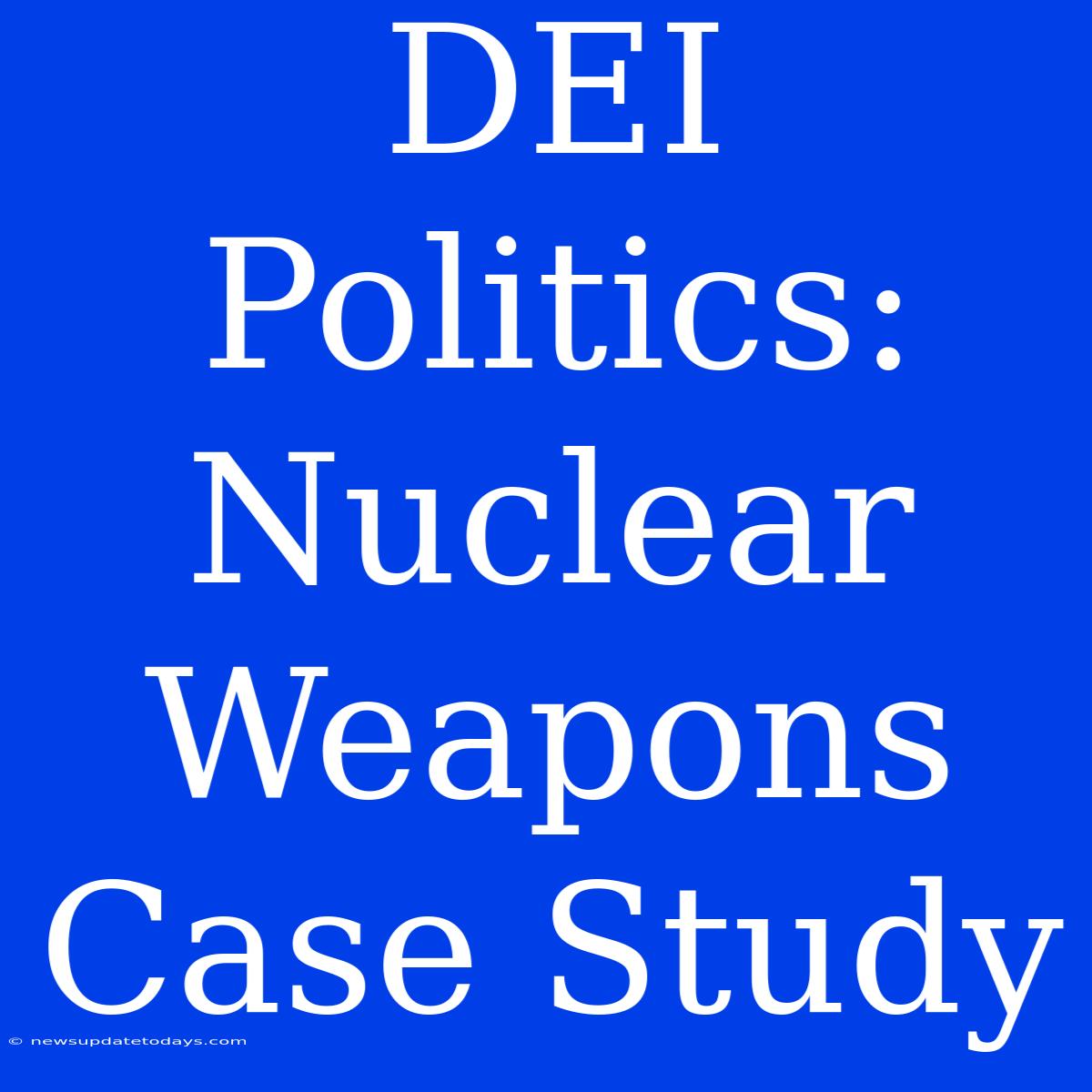DEI Politics: A Nuclear Weapons Case Study
The intersection of Diversity, Equity, and Inclusion (DEI) and the complex world of nuclear weapons policy presents a fascinating and often overlooked area of study. While seemingly disparate fields, DEI principles significantly impact the development, deployment, and ultimate control of these weapons of mass destruction. This article explores this intersection using a case study approach, highlighting the crucial role of diverse perspectives in navigating the ethical and strategic challenges surrounding nuclear proliferation.
The Lack of Diversity in the Nuclear Arena: A Systemic Issue
Historically, the nuclear field has been dominated by a relatively homogenous group – primarily white, male, and often from privileged backgrounds. This lack of diversity has led to a number of issues:
-
Limited Perspectives: A homogenous workforce is less likely to consider the diverse impacts of nuclear weapons policies on different populations and regions. The consequences of nuclear war, for instance, are not equally felt across the globe. Ignoring this reality undermines the effectiveness and ethical soundness of nuclear strategy.
-
Bias in Decision-Making: Unconscious biases can influence decision-making processes related to nuclear weapons, leading to potentially flawed judgments. This can manifest in the underestimation of risks or the overestimation of the benefits of certain policies.
-
Reduced Innovation: A diverse workforce fosters creativity and innovation. A lack of diverse perspectives limits the range of solutions considered in addressing complex challenges related to nuclear security.
Case Study: The Role of Women in Nuclear Disarmament
Examining the role of women in nuclear disarmament provides a compelling case study. Women have historically been underrepresented in nuclear policy-making and the broader security sector. Yet, their involvement is crucial due to their unique experiences and perspectives.
-
Grassroots Activism: Women have been at the forefront of grassroots movements advocating for nuclear disarmament, highlighting the humanitarian consequences of nuclear war and emphasizing the importance of peace-building initiatives.
-
Unique Perspectives on Security: Women often bring different perspectives on security to the table, emphasizing the interconnectedness of security issues and the importance of addressing root causes of conflict.
-
Diplomacy and Negotiation: The inclusion of women in diplomatic efforts related to nuclear non-proliferation and disarmament can lead to more effective negotiations and outcomes. Their participation can foster trust and facilitate dialogue among parties with conflicting interests.
Promoting DEI in Nuclear Policy: Practical Steps
Improving DEI in the nuclear weapons field requires a multi-pronged approach:
-
Targeted Recruitment: Actively recruiting individuals from underrepresented groups into relevant fields, including science, engineering, policy, and diplomacy.
-
Mentorship and Sponsorship Programs: Providing mentorship and sponsorship opportunities to support the advancement of individuals from diverse backgrounds.
-
Inclusive Leadership: Promoting inclusive leadership styles that value diverse perspectives and foster a culture of respect and collaboration.
-
Curriculum Reform: Integrating DEI principles into educational programs related to nuclear weapons and security studies.
-
Transparency and Accountability: Ensuring transparency in decision-making processes related to nuclear weapons and establishing mechanisms for accountability.
Conclusion: A Necessary Evolution
The integration of DEI principles into nuclear weapons policy is not just a matter of social justice; it is a crucial component of effective and ethical nuclear strategy. By fostering diversity and inclusivity, the international community can improve decision-making processes, enhance global security, and reduce the risk of catastrophic nuclear conflict. Ignoring the role of DEI in this critical arena would be a significant oversight with potentially devastating consequences. The future of nuclear security depends on a more equitable and inclusive approach.

